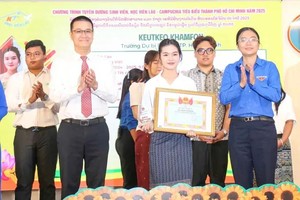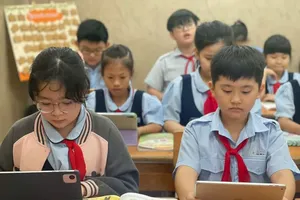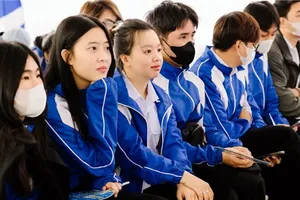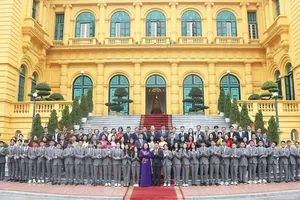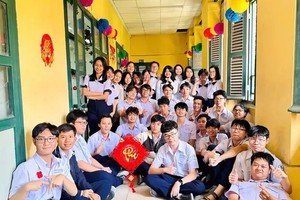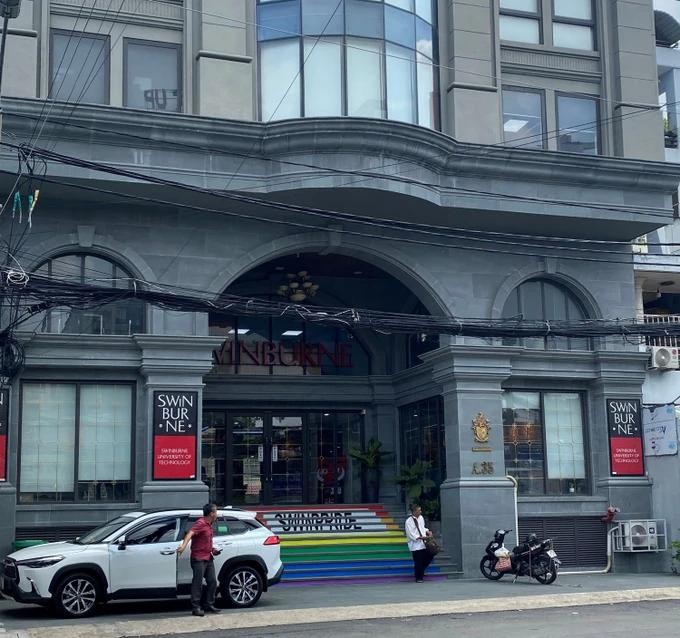
Three categories of schools are defined under the Vietnam Education Law of 2005 and its revision in 2019. These are public, private, and non-public schools. Preschool education is the only thing offered by non-public schools in Vietnam. It's important to note that although many schools advertise themselves as international to draw students, the current Vietnamese Education Law does not contain any rules for such institutions.
The Ho Chi Minh City Department of Education and Training acknowledged 32 schools with foreign components as of May 2024, up 10 from the previous year. Many schools, like North America International High School in Binh Chanh District, International High School in Phu Nhuan District, Asia International High School with six campuses in Districts 1, 3, 10, Tan Binh, Binh Thanh, and Thu Duc City, and APU International High School in District 11, are not recognized as schools with foreign elements despite having the word "international" in their names.
As elucidated by an official of the Ho Chi Minh City Department of Education and Training, the extant regulations pertaining to the naming of educational institutions comprise two fundamental elements such as the level of education (preschool, primary school, secondary school, high school) and the school's name.
These stipulations are designed to preclude any potential overlap with the names of previously operating educational institutions, to ensure conformity with traditional customs and traditions, and to guarantee compliance with current legislation. It can therefore be concluded that the use of the noun "international" before the school's proper name by educational institutions does not constitute a violation of the law.
It's also worth mentioning that international training cooperation is a great way to study for an international degree in higher education. It's so great to see universities around the world working together on training programs. This is a fantastic way to help make higher education more international. It's a shame that in reality, many of these international programs aren't as international as they seem.
The Ministry of Education and Training’s data indicates that as of June 2023, there are 408 training cooperation programs with foreign countries nationwide (44 Vietnamese universities with 102 foreign universities from 26 countries and territories). Tens of thousands of students are studying these programs with partners in the UK, US, France, and Australia.
Fantastically, there are different ways to get involved in training cooperation programs in Vietnam such as studying to get a foreign degree at a branch of an international university, or even getting a double degree at two universities in two countries; plus, international joint programs 2+2, and even studying online to get a foreign degree. If a person wishes to study an international program, they must master English which is a mandatory language to be able to keep up with their classmates.
However, roughly 62.71 percent of these programs are not graded since there are still no precise criteria for enrollment and training organizations at all levels for collaborative training programs with foreign nations. This is mostly because of restrictions on the quality of the enrolled data (for example, low high school exam scores, academic records, and proficiency in a foreign language).
Some education experts have found that most of the schools with a foreign element are based on foreign investment. This regulation has led to many schools teaching foreign programs. The students who graduate from these schools are recognized as having the same level of knowledge as students from foreign universities. However, because schools are still owned by Vietnamese people and funded by Vietnamese money, they are still classified as private schools. It's also worth noting that owners and investment capital can be two highly volatile factors in the field of investment in education.
Specifically, the Thanh Thanh Cong Education Company (TTC Edu) of Vietnam is taken as an example. This company currently owns 17 private schools and foreign language centers, which are being sold to Navis Capital Partners Investment Fund (Malaysia). Similarly, the Vietnam-Australia International School System (abbreviated as VAS) signed a transfer contract with the global financial investment group TPG. After the transfer, this group became the majority owner of VAS shares.
Conversely, Vietnamese investors have repurchased entire educational institutions with foreign investment capital from foreign investors. In such cases, the "foreign investment capital" factor is no longer applicable, despite the operational structure remaining unchanged. This results in the inadvertent creation of numerous deficiencies in the management of educational institutions.
A leader of the Department of Education and Training of Ho Chi Minh City has identified a number of challenges and issues currently facing the management of educational institutions with foreign involvement. For instance, there are currently no specific regulations in place governing the standards for principals and vice principals who are foreigners. Additionally, the pilot period for some foreign programs is being left open-ended, and the transfer of capital and change of ownership at educational institutions with foreign elements is causing difficulties for management.
In light of these shortcomings, the Department of Education and Training of Ho Chi Minh City has submitted a document to the Ministry of Education and Training, requesting the provision of more detailed regulations for each type of school. These include the relationship between investment capital, tuition fees and enrollment scale; financial management mechanisms, quality assessment management, diplomas and certificates; the issue of articulation and transfer of schools with the Vietnamese general education system; guidance on standards for principal and vice principal positions,
As asserted by Director of the Institute of International Training of the National Economics University Associate Professor Le Trung Thanh, the absence of monitoring, evaluation and ranking mechanisms for Vietnam's foreign training joint programs has resulted in the emergence of numerous such programs, which have been aggregated into a single, indiscriminate category, irrespective of their intrinsic quality.
Furthermore, the aforementioned programs are not listed on the Ministry of Education and Training's website rendering it challenging for prospective learners to obtain accurate and impartial information regarding foreign training joint programs. Parents are uncertain as to which programs are reputable and of good quality for their children to study.
It is therefore imperative that the Ministry of Education and Training addresses this issue with urgency and introduces a mechanism that enables Vietnamese training institutions to access advanced foreign training models, thereby enabling them to remain at the forefront of global developments in higher education integration.
The case of the American International School (HCMC) and violations of several other educational institutions have highlighted the necessity for improvements in the state management of cooperation and investment in the field of education and training. Prime Minister Pham Minh Chinh has directed the Ministry of Education and Training to expeditiously conclude the draft decrees amending and supplementing Decree No. 86/2018, which regulates foreign cooperation and investment in the field of education, and Decree No. 46/2017, which regulates investment and operational conditions in the field of education.
Specifically, enhancing the administration of foreign-invested schools engaged in joint ventures, partnerships, and the implementation of integrated programs, international programs, and joint programs with foreign countries are newly addressed within the framework of the State's efforts to promote the policy of social mobilization in the education sector.
Simultaneously, the Government requested the Ministry of Education and Training to review and inspect foreign-invested schools nationwide that are teaching integrated programs, international programs, and programs in cooperation with foreign countries to promptly detect, correct, and handle violations.












